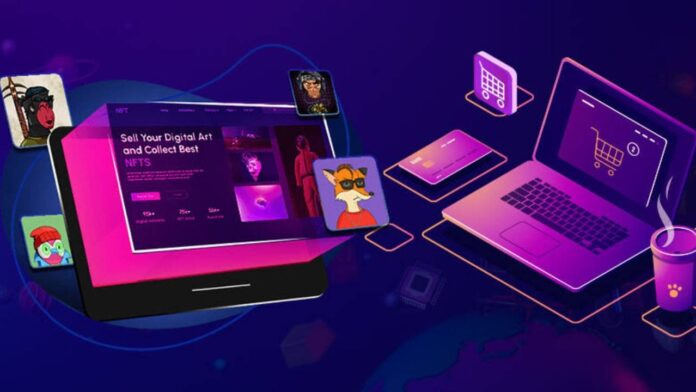As the world of e-commerce continues to evolve, businesses are constantly looking for new ways to stand out and offer unique value to their customers. Non-fungible tokens (NFTs) have emerged as a new and innovative way for businesses to engage with their customers and offer unique products and experiences. we will explore how businesses can incorporate NFTs into their e-commerce strategy and stay ahead of the curve.
What are NFTs?
NFTs are unique digital assets that represent ownership of a particular piece of content, such as artwork, music, or video. Unlike traditional digital assets, such as MP3 files or JPEG images, NFTs are unique and cannot be replicated or duplicated. This makes them highly valuable and sought after by collectors and fans.
How can NFTs be used in e-commerce?
NFTs offer several opportunities for businesses to engage with their customers and offer unique products and experiences. Here are some ways businesses can incorporate NFTs into their e-commerce strategy:
- Offer exclusive products and experiences
Businesses can use NFTs to offer exclusive products and experiences to their customers. For example, a fashion brand could release a limited edition clothing line that is only available as an NFT. By offering exclusive products, businesses can create a sense of scarcity and exclusivity that can drive demand and increase sales.
- Create loyalty programs and rewards
NFTs can be used to create loyalty programs and rewards for customers. For example, a coffee shop could offer NFTs to customers who make a certain number of purchases, which can then be redeemed for free drinks or other rewards. By using NFTs as rewards, businesses can incentivize customers to continue engaging with their brand and increase customer loyalty.
- Sell digital assets and collectibles
Businesses can sell digital assets and collectibles as NFTs, such as artwork, music, or videos. For example, a musician could release a new album as an NFT, with each NFT representing ownership of a particular song or album art. By offering digital assets as NFTs, businesses can create a new revenue stream and tap into the growing market for digital collectibles.
- Provide access to exclusive content and experiences
NFTs can be used to provide access to exclusive content and experiences, such as backstage passes, meet-and-greets, or private concerts. By offering access to exclusive content and experiences as NFTs, businesses can create a closer relationship with their customers and offer unique value that cannot be replicated by competitors.
How to incorporate NFTs into your e-commerce strategy
Here are some steps businesses can take to incorporate NFTs into their e-commerce strategy:
- Identify opportunities
The first step in incorporating NFTs into your e-commerce strategy is to identify opportunities where NFTs can add value to your business. This could include offering exclusive products or experiences, creating loyalty programs and rewards, or selling digital assets and collectibles.
- Determine your target audience
Once you have identified opportunities for NFTs in your e-commerce strategy, the next step is to determine your target audience. Who are the customers who would be most interested in NFTs, and what types of products and experiences would they be willing to pay for?
- Develop a plan
Once you have identified opportunities and your target audience, the next step is to develop a plan for how you will incorporate NFTs into your e-commerce strategy. This could include identifying the types of NFTs you will offer, the price points, and the marketing strategies you will use to promote your NFTs.
- Partner with NFT marketplaces
To sell your NFTs, you will need to partner with NFT marketplaces, such as OpenSea, Rarible, or SuperRare. These marketplaces provide a platform for buying and selling NFTs, and can help you reach a wider audience for your NFTs.
- Create your NFTs
Once you have a plan and a marketplace partner, the next step is to create your NFTs. This may involve creating unique digital assets, such as artwork or music, or converting existing assets into NFTs. You will also need to determine the quantity and rarity of your NFTs, as well as any additional benefits or rewards that come with owning an NFT.
- Promote your NFTs
Once your NFTs are created and listed on a marketplace, the final step is to promote your NFTs to your target audience. This may involve using social media, email marketing, or paid advertising to reach potential buyers. You may also want to consider collaborating with influencers or partnering with other businesses to promote your NFTs.
Conclusion
NFTs offer a new and exciting way for businesses to engage with their customers and offer unique products and experiences. By incorporating NFTs into their e-commerce strategy, businesses can tap into a growing market for digital collectibles and provide unique value to their customers. Whether you are a fashion brand, musician, or coffee shop, there are many opportunities to incorporate NFTs into your business strategy and stay ahead of the curve in the world of e-commerce.



